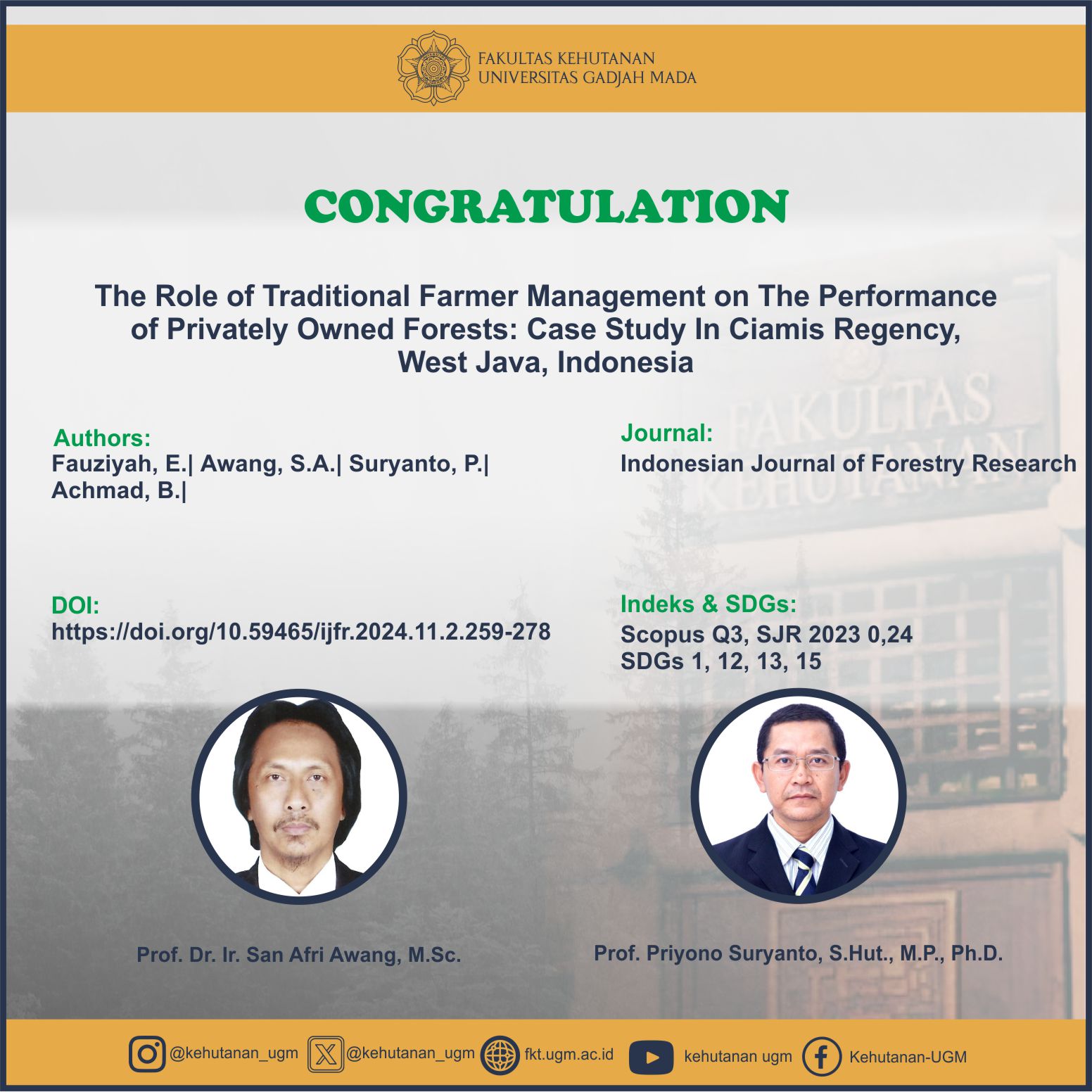
Abstract
Privately owned forests (POF) play an important role in Indonesia’s social, economic, and environmental spheres. The success of optimizing their roles relies on the traditional management practices carried out by farmers. Therefore, this study aimed to explore POF traditional management by farmers, POF performance, and their influencing factors. Respondents included 170 farmers selected by simple random sampling and key informant. This study was conducted in three villages across Ciamis Regency, West Java, in 2022. Data was collected through structured questionnaires, in-depth interviews, and field observations. The collected data was tabulated, graphic, categorized, and descriptively analyzed. The results showed that although the knowledge about POF management was constantly developing, not all farmers applied their knowledge. POF management practices were found to be closely related to marital status, farming experience, land area, distance from home, number of parcels, and income. Furthermore, traditional management practices were reflected in POF performance; the higher the management level, the better the performance, and vice versa. Equitability and efficiency were high across all locations; productivity was low, while sustainability was only high in Kalijaya Village. The different conditions of each element of POF, show that although POF might not be optimal in terms of economic contribution, its sustainability provides environmental benefits. This study has many limitations as it only looks at factors within POF farmers that influence POF management and performance. Further research into external factors that can influence POF performance and encourage an increased economic role for POFs can be explored in more depth.
SDGs:
SDG 1: No Poverty
SDG 12:Responsible Consumption and Production
SDG 13:Climate Action
SDG 15:Life on Land
Link Dokumen:
Download
